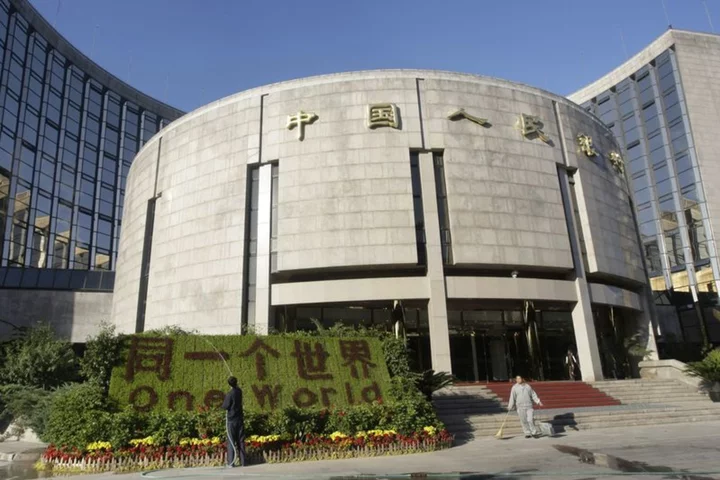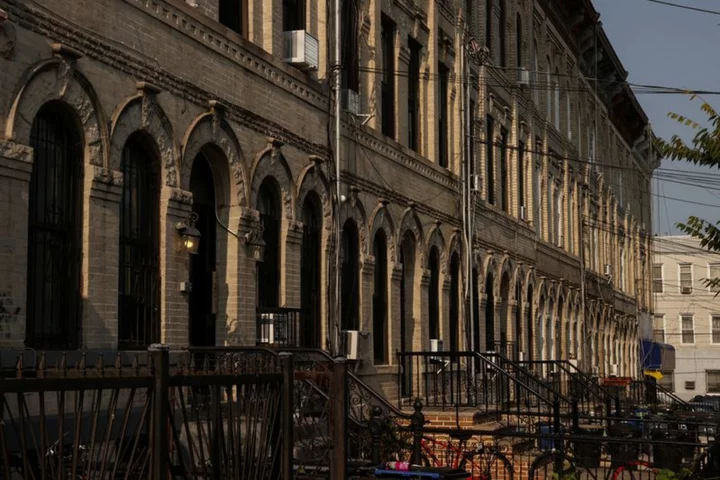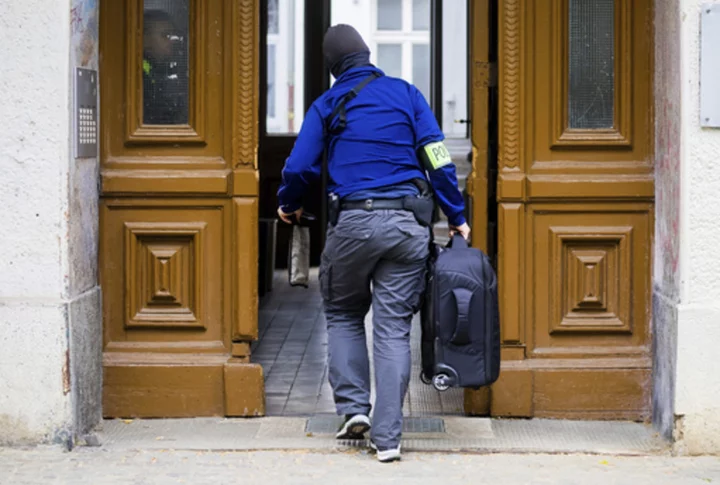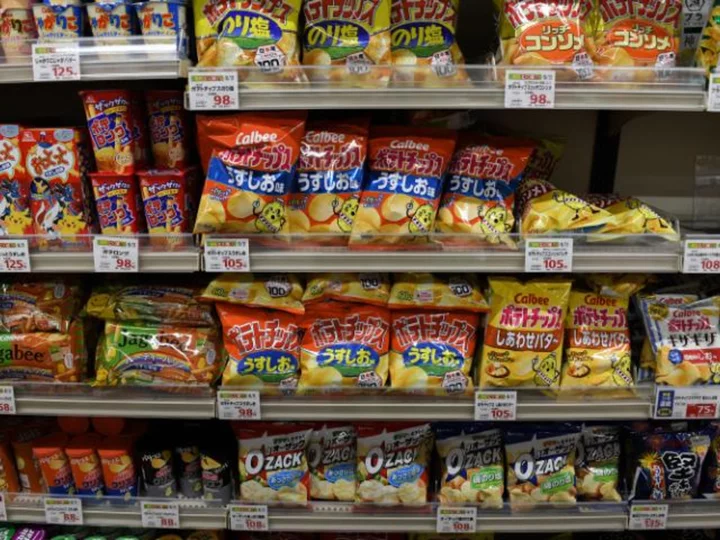SHANGHAI/SINGAPORE (Reuters) -China's central bank ramped up liquidity injection but kept the interest rate unchanged when rolling over maturing medium-term policy loans on Wednesday, matching market expectations.
Market participants believe that a weakening Chinese yuan has constrained the central bank's efforts to aggressively lower interest rates even though the recovery of the world's second-largest economy remains uneven and requires further stimulus.
The People's Bank of China (PBOC) said it was keeping the rate on 1.45 trillion yuan ($199.92 billion) worth of one-year medium-term lending facility (MLF) loans to some financial institutions unchanged at 2.50% from the previous operation.
The central bank said the loan operation was meant to maintain banking system liquidity reasonably ample to counteract short-term factors including tax payments and government bond issuance.
"At the same time, it will appropriately provide mid- and long-term base money," the PBOC said in an online statement.
All 31 market watchers polled by Reuters this week had expected the central bank to inject fresh funds to exceed the maturity.
With 850 billion yuan worth of MLF loans set to expire this month, the operation resulted a net 600 billion yuan of fresh fund injection into the banking system.
"Weak inflation and the recent liquidity squeeze call for stronger policy support this week," Carlos Casanova, senior economist for Asia at UBP, said in a note this week.
"Liquidity conditions tightened in October, as a deluge of bond issuance to fund fiscal stimulus and quarter-end cash demand from corporates drove up interbank rates. The most likely outcome is for PBOC to inject more support through open market operations, while leaving the MLF rate unchanged."
He added that authorities will remain on alert and continue to support the recovery, expecting another 10-basis-point interest rate cut and an additional RRR cut in December, if not sooner.
The interest rate on one-year AAA-rated negotiable certificates of deposit (NCDs), which measure short-term inter-bank borrowing costs, is hovering at a six-month high of 2.5653%, about 7 bps higher than the MLF rate the central bank charges financial institutions.
Wednesday's liquidity support for the nascent economic recovery through the medium-term policy loans has, however, reduced necessity for more imminent monetary stimulus, some traders and analysts said.
"But MLF loans is rather expensive, and we still expect additional reserve requirement ratio (RRR) cuts in the future to reduce (banks) debt costs," said Xing Zhaopeng, senior China strategist at ANZ.
China has reported a slew of mixed October economic data, as industrial output and retail sales growth data surprised on the upside, while factory activity unexpectedly contracted and consumer prices continued to fall.
Still, market watchers said the currency remained as a key constraint for the authorities to ease monetary policy. China's yuan has lost about 5% to the dollar so far this year to become one of the worst performing Asian currencies.
The sizable depreciation has prompted authorities to step up efforts to support the currency, with many analysts believing policymakers may view yuan stability as a prerequisite for restoring confidence in yuan assets.[CNY/]
China remains an outlier among global central banks as it has loosened monetary policy to shore up a stalling recovery but further rate cuts will widen the yield gap with the United States, putting more pressure on the yuan and risking outflows.
The central bank also injected 495 billion yuan through seven-day reverse repos while keeping borrowing cost unchanged at 1.80%, it said in the statement.
($1 = 7.2530 yuan)
(Reporting by Winni Zhou and Tom Westbrook; Editing by Christian Schmollinger, Stephen Coates & Shri Navaratnam)









